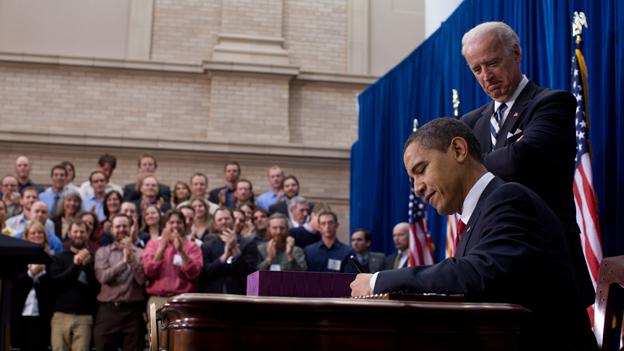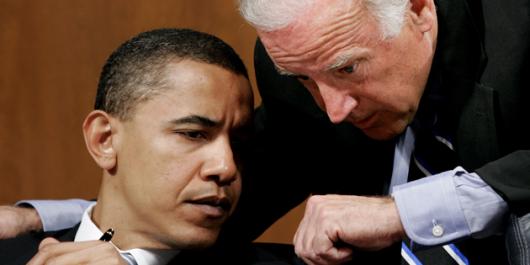
“I brought my American passport today in case I die today,” said Marwan Mossaad, 33, a graduate student of architecture with dual Egyptian-American citizenship. “I want the American people to know that they are supporting one of the most oppressive regimes in the world and Americans are also dying for it.“
In the wake of Tunisia‘s “Jasmine Revolution,” and as seen all over the news the past week (once the Village moved past its who-sitting-with-who, SotU–prom obsessions), protests continue to roil Egypt — as well as Yemen, Jordan, and the Sudan — in what amounts to an historic popular uprising across the Middle East. Our response so far (Joe Biden notwithstanding): “Saying that ‘no one is satisfied‘ with the steps Mubarak has taken since the protests for political and economic freedom began, Clinton said a transition process was needed ‘so that no one fills a void..what we don’t want is chaos.‘”
As Slate‘s Kai Bid notes: Nor do we want to alienate the Egyptian people further by seeming to back a cruel and repressive government that has clearly lost the confidence of its people. “Obama still has the relatively clean slate and the rhetorical powers to execute a pivot in American policy. In his June 2009 Cairo speech Obama said, ‘America respects the right of all peaceful and law-abiding voices to be heard around the world, even if we disagree with them. And we will welcome all elected, peaceful governments — provided they govern with respect for all their people.‘”
Hopefully, that worthy standard will encourage us to think twice before backing any play involving Egypt’s newly-appointed vice-president (and thus Mubarak’s suggested successor), former intelligence chief Omar Suleiman — a.k.a. the CIA’s point man for extraordinary renditions. “In a nutshell: this appointment will do nothing to pacify the millions of rioting citizens, and if it stands it will perpetuate the same kinds of policies and US power interests in the region to which the people have said enough.“





